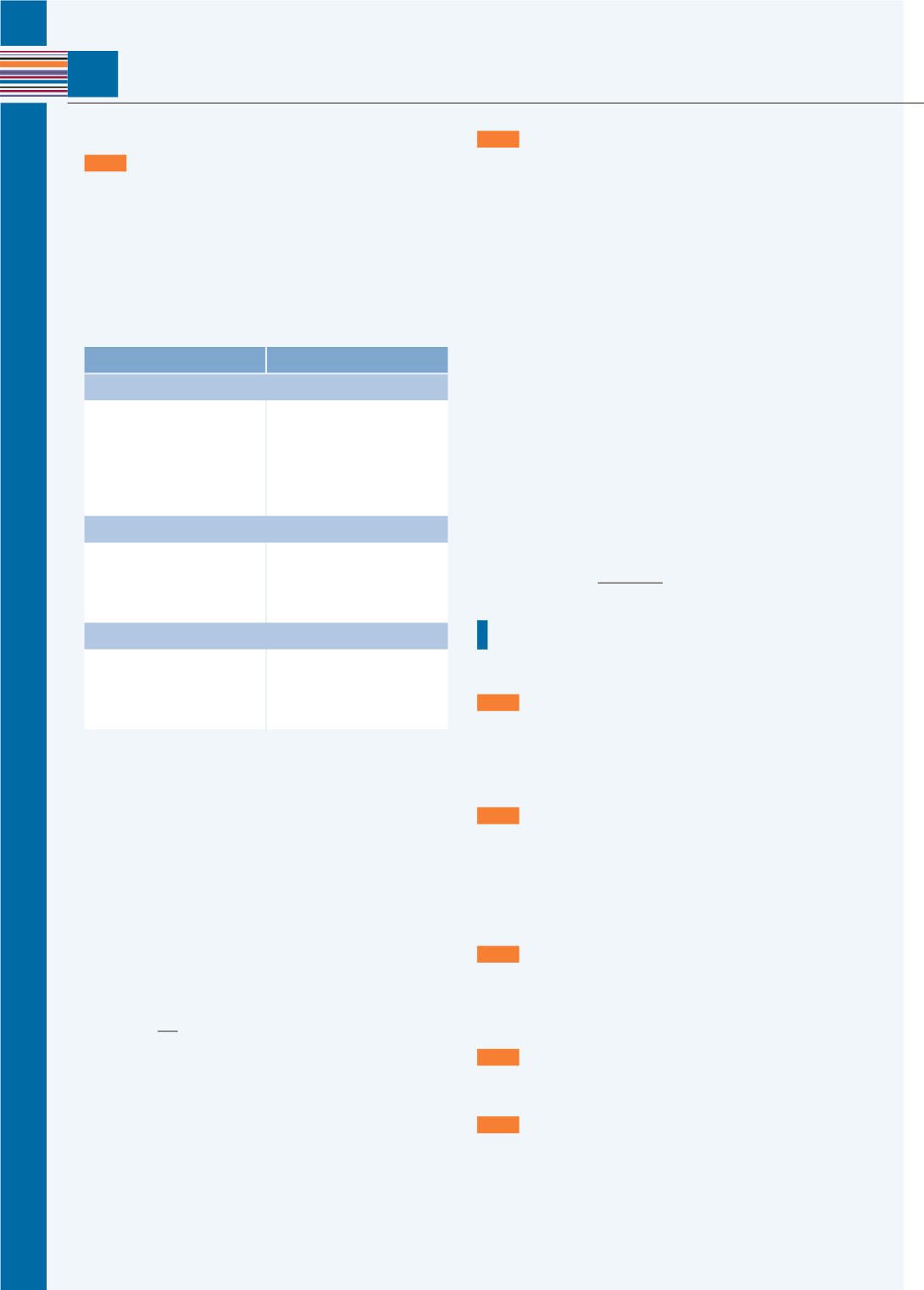
LANGUAGE REFERENCE
146
11
GRAMMAR
G1
REPORTED SPEECH
Use reported speech to report someone’s words.
‘I want to become a famous singer.’
She said she wanted to become a famous singer.
‘I always hoped to become an actor.’
He said he’d always hoped to become an actor.
When we use reported speech, we make changes
to the tense of the verb, to pronouns and to time
adverbs. The table shows the most common changes:
‘
I work
as a teacher.’
He said
he
worked
as a teacher.
‘
We left
our bags at the station.’
They
said
they had left
their bags at the station.
‘
I start my
new job
today
.’
Rita said
she started her
new job
that day
.
‘They
were
with
me yesterday
.’
Laurie said they
had been
with
her
the previous day
.
TELL
AND
SAY
Use
tell
with an object before the reported speech.
He told
me
that he couldn’t come out.
ü
He told that he couldn’t come out.
û
Never use
say
with an object before the reported
speech.
She said me that she would be late.
û
COMMANDS
Use the infinitive with
to
to report a command.
‘
Leave
my house!’
He told the journalist
to leave
his house.
G2
REPORTED QUESTIONS
To report a question, use expressions like
He asked
me …
,
She wanted to know … .
For Yes/No questions (questions which require
yes
or
no
as an answer) use
if
.
‘Do you know Peter?’
They asked me
if
I knew Peter.
‘Have you worked on a newspaper before?’
He wanted to know
if
I had worked on a newspaper.
For other questions, use the
wh
- word.
‘
Why
are you interested in TV?’
He asked me
why
I was interested in TV.
‘
What
experience do you have?’
I wanted to know
what
experience she had.
As with reported speech, the verb in the direct
question often changes in the reported question
by moving back a tense and there are changes to
pronouns and time adverbs.
‘Is Rachel
coming
to stay
today
?’
Mum asked me if Rachel
was coming
to stay
that day
.
In reported questions, use the same word order as a
statement.
Sarah asked me did I want to visit her.
û
Sarah asked me if I wanted to visit her.
ü
!
Don’t use question marks with a reported
question.
KEY LANGUAGE
KL
COMPARING AND CONTRASTING
different from …, the same as …, similar to …,
much better than …, less important than …,
a lot worse than …
VOCABULARY
V1
DESCRIBING BOOKS AND FILMS
atmosphere, audiences, breathtaking, brooding,
cast, chapter, character, classic, dark, disturbing,
dramatic, entertaining, episode, gripping,
groundbreaking, heavy going, hilarious, magnificent,
novel, out-of-this-world, outstanding, page-turner,
plot, series, sketch, stunning
V2
MEDIA GENRES
animation, autobiography, classical, current affairs
programme, documentary, drama series, folk,
hospital drama, jazz, opera, quiz show, reality,
comedy, science fiction, sitcom, soap, soul, thriller
V3
WORDS CONNECTED WITH THE ARTS
bestseller, biography, blockbuster, critic, epic, hit,
household name, masterpiece, movie rights, royalties
V4
FILMS
action scenes, choreograph (v), dub (v), full-length,
genre, hero, heroine, lead actor, lead character,
location, main role, pitch, sequel, set (n), special effects
Direct speech
Reported speech
Tenses
present simple
past simple
present continuous
past continuous
present perfect
past perfect
past simple
past perfect
will
would
can
could
Pronouns
I
he/she
we
they
my
his/her
our
their
Time adverbs
today
then/that day
yesterday
the day before
tomorrow
the next day/the day after
last week
the week before


